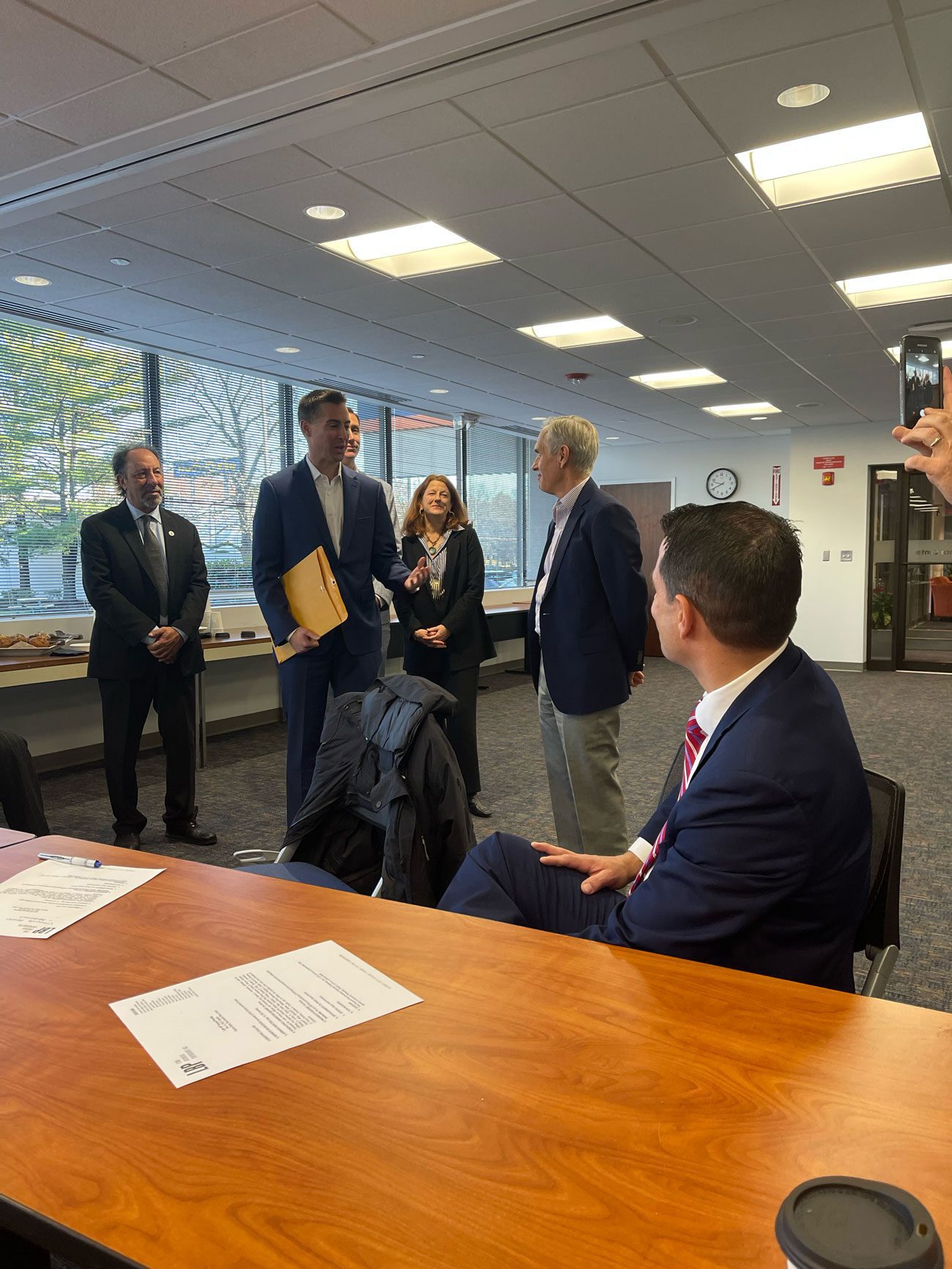The Lynn Business Partnership, with its mission to “improve the economic vitality and overall quality of life in Lynn,” sprung from “Lynn 2000,” a vision for the city drafted by a group led by the late John S. Moran years before the millennium dawned.
Moran was the Daily Evening Item executive editor and his writings became a roadmap for the Partnership’s founding in 1992 at a time when Thomas P. Iarrobino, one of the Partnership’s founders, said Lynn was facing significant challenges.
The Lynn Area Chamber of Commerce was fractured and Iarrobino was asked to lead an effort to put it back together. The former Shore Bank & Trust Co. president joined other local bankers to discuss how to refocus the city’s business community and point it in a positive unified direction.
With the groundwork for the Partnership in place, the founders turned to the late William F. Connell of Swampscott, chief executive of Connell Limited Partnership, at the time one of the country’s most successful privately-held companies. Connell, who sold newspapers as a boy in McDonough Square in West Lynn, was also president of The Vault, a group of Boston executives who combined their brain power and business experience to benefit the city.
Connell counseled taking a deliberate approach to reshaping business advocacy in his hometown. Iarrobino and the fellow Partnership members took his advice and focused on concrete approaches to bettering Lynn while avoiding “swinging at every pitch.”
Since then, the Partnership forged an ongoing collaboration with city, state and federal officials that produced positive results for the city.
Those achievements included the 1992 comprehensive plan (in conjunction with then-Community Development Director Jansi Chandler) that included the Arts and Cultural District; the $7.7 million Washington Street project; the City Summit series; an $839,000 Economic Development initiative grant; establishment of the Lynn Development Board; a federal Housing and Urban Development Best Practices award for citizen participation; establishment of the Lynn Cyber District; city inspectional services consolidation; zoning regulations modifications; introduction of artists live/work space downtown, and unprecedented residential development downtown; the creation of the multi-service center (which concentrated social-service resources at Washington and Liberty streets); and reinstatement of the Planning Department.
The Partnership’s Holy Grail — extension of rapid transit through Lynn — continues to be a goal and a challenge.
Today, the Partnership is a consistent voice for improving Lynn with a dedicated membership that continues to include Iarrobino as well as executives from a wide variety of commercial sectors and participation in Partnership meetings by top city officials and the city’s legislative delegation.
Mayor Jared C. Nicholson, city Planner Aaron Clausen and assistant planner Lauren Drago attended last week’s Partnership 30th annual meeting and outlined a vision for an inclusionary zoning plan aimed at accelerating economic development and affordable housing creation.
The Partnership has benefited from strong and steady hands at its helm. Only three chairman have headed up the organization since its founding.
Andrew J. Riddell, former AtlantiCare chief executive, served as chairman from 1992 to 1996. He was succeeded by James D. Berk, a charter member of the Partnership and former owner and president of Standard of Lynn.
In 2009, Gordon R. Hall, president of The Hall Co. (and currently an Essex Media Group partner) succeeded Berk.
With praise and thanks for his service from Partnership members, Hall passed the chairman’s baton to Steven L. Antonakes, Eastern Bank executive vice president and Massachusetts Commissioner of Banks 2003 to 2010.
Hall said Lynn in 1992 was a “city in a dark place” with a “moribund” downtown and declining population.
Flash forward 30 years to a Lynn where business leaders join city officials in envisioning a waterfront where firms conduct research and development; residents enjoy a boardwalk with panoramic views, and new construction in the city includes specific conditions for increasing local affordable housing.
“There is quite a bit happening,” Hall said.
In no small part because of the Lynn Business Partnership.

